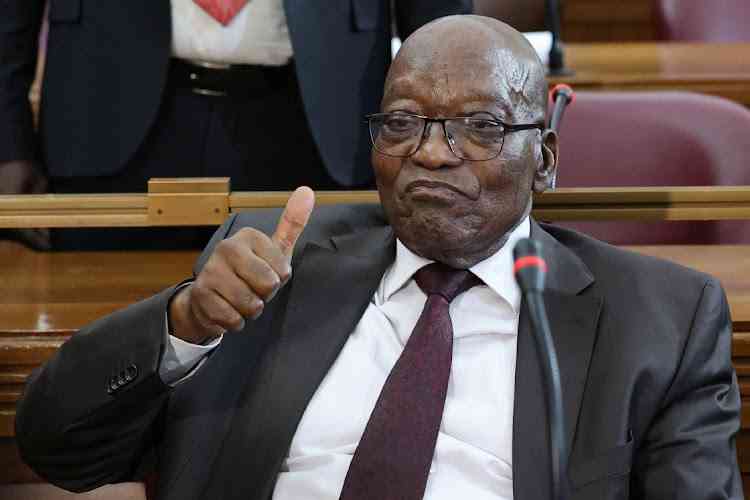
IT is now one year after the first post-Mugabe elections were held which, despite their credence being contested by the MDC alliance, gave an aura of legitimacy to President Mnangagwa’s government. However, the last 12 months have been painfully eventful and not fruitful by any stretch of the imagination. We are in deeper trouble than before.
This has prompted some to argue that former President Mugabe was better than President Mnangagwa, a proposition that I find flawed and baseless. The fact of the matter is that Zanu PF has never shown signs of being in government to develop the country. Evidence of that is found in the fact that they inherited and destroyed a thriving economy whose resources and wherewithal they have perpetually plundered into their personal pockets creating a new breed of non-productive millionaire politicians. You can get rich very fast by being a Zanu PF politician than investing in business. The Mnangagwa administration is a continuation of the Mugabe era and the worsening situation is due to depleting resources.
This scenario has thrown the nation into quandary on whether to pursue democracy through political reforms and elections or to focus on economic development for national prosperity. This question is becoming more relevant now than before because we continue to be increasingly oppressed and to be impoverished every day. I call it a quandary because both options have been pursued without success. Zanu PF is not ready to reform itself, let the country move on or to lose power and yet their hunger to drain national resources is insatiable. The police force and judiciary systems continue to be weakened by being stifled of resources. It is a very sad scenario that bleaks the future of the country.
If we were as normal as other African countries where the people still hold the power to influence political change, we would otherwise choose to put aside the democratic project to focus on economic development. Between 1980s and the late 1990s, scores of countries that moved to democracy did so on the back of having established thriving economies driven by solid industrialisation. And in recent times, countries that witnessed recessions in democracy did so on account of poorly performing economies. It would be vapid to rehash the mundane and obvious link between political stability and economic performance.
The point is that solid democracy cannot be achieved as a standalone as has been the case in Zimbabwe and many other African countries. Democracy is a product of many years of investment in social, economic and political conditions. This is why the quick-fix models of imposing democracy by the United States of America in countries such as Iraq, Afghanistan and others has not materialised. The sad reality in Africa is that we have been made to think that democracy can be set up and transform society quickly, easily, anywhere and anytime. We have believed that democracy is the answer to everything and missed a chance to learn that it is its conditions should be nurtured to give rise to democracy.
The underlying conditions that lead to societies achieving solid democracy point to a more complicated reality and tends to attract criticism at earlier stages. In the West, these early stages were marked by slavery, colonisation and racisms; China undercut its labour and in recent years Middle Eastern countries used cheap labour from Africa. The key to the initial stages is that before members of the society begin to self-actualise, the society must meet certain cultural, economic and political conditions. These include the ability of citizens to meet basic requirements and the establishment of a solid economic stock which enables the State to meet the needs of people as part of fulfilment of their rights.
It is from this transition and the economic stock where resources to establish stronger democratic institutions are drawn and a democratic culture is inculcated among citizens. In thriving democracies, citizens tend to give more attention to their responsibilities to help democracy function before their rights. Democracy becomes part of the social culture, embedded in the way people think and behave with democratic institutions existing to safeguard it.
The bad news is that the post-independent African leadership was too blind to notice that while it was relevant to sustain the euphoria that came with independence and maintain a flare of democracy, it was much more critical to establish solid economies from which democracy would be sustained. It is possible that they were waylaid by their colonial masters to pursue that route given that pseudo-democracy tends to weaken developing States in the face of super powers.
- Chamisa under fire over US$120K donation
- Mavhunga puts DeMbare into Chibuku quarterfinals
- Pension funds bet on Cabora Bassa oilfields
- Councils defy govt fire tender directive
Keep Reading
Available evidence suggests that it is possible to create conducive conditions for democracy. Industrialisation and economic growth are their key drivers. This simply means that sustainable democracy derives from a thriving economy linked to industrialisation whose conditions drive social change and self-actualisation.
The benefits of a thriving economy tend to infiltrate all aspects of life, enabling self-actualisation, occupational specialisation, access to basic services, improved wellbeing and create an empowered citizen who can hold their leaders accountable without fear and under the protection of independent democratic institutions. These conditions establish a self-empowering and self-reinforcing ecosystem whose effect is the transformation of social life, political organisations and mass involvement in politics, breathing life to a stronger democratic system.
Tapiwa Gomo writes in his personal capacity











